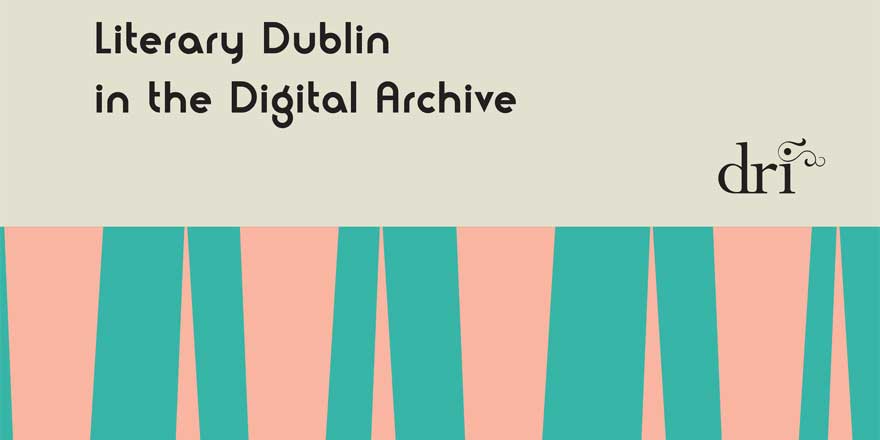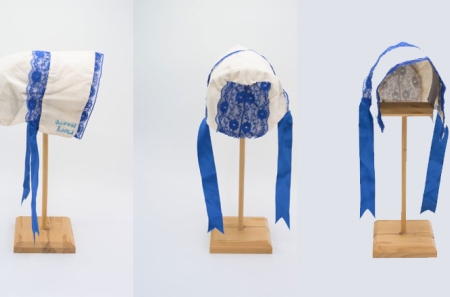
New Resource: Literary Dublin in the Digital Archive booklet
07 November 2022The Digital Repository of Ireland (DRI) is delighted to announce a new resource ‘Literary Dublin in the Digital Archive’.
The ‘Literary Dublin in the Digital Archive’ booklet features literary collections held in DRI and other digital archives. The resource was produced to accompany an event on 13 October 2022 called Literary Dublin in the Digital Archive and both the event and booklet were sponsored by Dublin UNESCO City of Literature and Dublin City Council. This event brought together writers, geographers, folklorists, historians and archivists to delve into our digital archives to explore and build a landscape of literary Dublin that incorporates the letters, maps, stamps, photographs and other archival materials held in DRI and other digitally available sources. The event explored three themes: what Dublin literary collections are held in digital archives, what work is being done to build digital literary archives, and finally, how these sources are being used as inspiration and background text for fiction. Engagement with digital collections can often be a solitary activity. This event aimed to bring together a wide variety of people who use and work in the digital archive in a physical space to explore their work together. As such, Literary Dublin in the Digital Archive sought to make that engagement with digital collections a collaborative event where we could share and learn from each other’s practice.
The booklet has 4 sections (and an introduction), on the day speakers and the resources that were explored at the event, literary Collections held in DRI and other digital repositories, collections and sources for exploration of the past and further resources from DRI. This booklet aims to showcase the digital collections and resources that were explored throughout the event. These collections include digital literary collections held in DRI and by DRI’s member institutions, as well as digital repositories and collections discussed by participants on the day, including the Census Records of the National Archives of Ireland (NAI), the Dictionary of Irish Biography (DIB) and the National Folklore Collection (NFC).
The collections in this booklet are not confined to literary collections or material relating to authors. We have included here a section called ‘Sources for exploration of the past’. These are collections that may inspire fiction, both historical and contemporary. DRI is home to a growing number of social science collections, such as the Archiving Reproductive Health project, which will provide long-term preservation and access to the many at-risk archives generated by grassroots women’s reproductive health movements during the Campaign to the Repeal the Eighth Amendment. This collection contains the details of the journey to repeal and the stories that inspired this movement (there’s more information on this project on the DRI website). Many of the collections in this section are oral history collections that provide authentic voices from contemporary Ireland and our past, and that may serve as inspiration to writers. We have also included collections that focus on the history of design, historic photographs and paintings. We feel these collections can illuminate the past, by providing the colour that surrounded people in their everyday lives. The list of collections contained in the booklet is not exhaustive – the intention is to draw attention to some of the digital research resources in the repository, which we encourage you to explore further.
Like all DRI resources, the booklet is free to use. You can find this new resource in the repository at the following DOI: https://doi.org/10.7486/DRI.k930rp968-1



